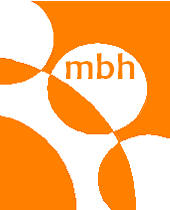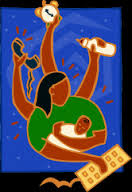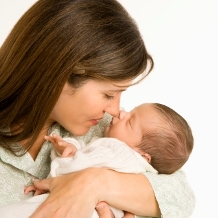MOTHERS BE HEARD: THE STORY
As I write this in 2015 it is
the beginning of a new year and a new era. Technical issues made it difficult for
mothersbeheard.com to continue as it was so this
website (formerly the MBH
Mobile Counselling Service, in August 2016 this
service became Your Storyline) is taking it under its wing and giving you
easy access to key content – namely the voices of
women who have shared about their evolution as a
mother. Below is a story about
Mothers Be Heard’s own evolution.

It was July 2006. We had been emailing for
just over ten years. Microsoft had just
released it’s Xbox 360 games console in Australia. Myspace was the new cool and facebook had not
even become a household name. Bloggers were becoming as common as joggers
and the World Wide Web was gaining momentum at
lightning speed while people still marvelled at how
websites could now be interactive. YouTube had only just hit mainstream.
For new mothers cooped up at
home with little ones it was a brave new world.
MotherInc – Australia’s first online magazine
– had only been operating for five years and
parenting forums had emerged in Australia like The
Bub Hub, Minti, Real Mums, and Essential Baby.
Women had parenting information
at their fingertips and could shop, debate and
connect at any time of the day or night – aka
whenever bubs would allow for it – all in the
comfort of their own home. No
longer were conversations restricted to the
playgroup personalities on offer.
It was a heady time to start a
website of my own.
My eldest was just gearing up
for his first year at school while his younger
brother had started toddling around the house and
learning to talk. I was fairly
and squarely in motherland and after an attempt to
combine parenting with paid work without backup
support I’d called it quits on my career for a
while.
But that didn’t mean that my
brain had stopped or my desire to express the social
work values that had become integral to who I am had
vanished.
As I joined the throngs of new
mums trying to find information and solace on this
intoxicating thing called the internet I noticed
something: advice was aplenty and so were mind
numbingly boring posts about daily lives – the
mundane stuff like what little Johnny was eating now
or what new gizmo a mum had just bought.
Opinions from the loud and proud also
abounded. Basically if it wasn’t
light and fluffy or you didn’t dig the wild and
inflammatory then you’d might as well hop off.
Where was the opportunity for
women to explore the internal terrain on life as a
mother? How their life has
changed? What’s important to them
now? How they feel about
themselves? What they’ve lost and
what they’ve gained – without being subjected to the
all too quick judgment of their peers – themselves
trying to forge new identities and highly sensitive
to how they’re fairing as a parent?
Who was consulting these women
– especially career women - on a level that would
allow them to better process the unexpected
realities that they were facing? Who was helping them knit together again individual
direction and meaning while they are a shadow of
their former self?
My counselling sensibilities
were alive with possibility. Where else could women share their honest
impressions of new motherhood? Be
taken seriously? Be given an
opportunity to speak separately about being a woman
and a mother? Be heard?
I had just emerged from a year
of researching – stealing time away from family
obligations to immerse myself in the delicious
solitude of university libraries – into the
experience of contemporary motherhood. Why? Why not?
The information was
illuminating and disturbing. It
resonated with my personal experience, yes, but more
significant to me was that it spelt out what I had
sensed around me: mothers today were living in
uniquely constructed pressure cookers. Contradictory social expectations of feminist
individuality and the perfect nurturer were bubbling
together in a brew that often created much tension
and guilt. And to top it
all off, if you cracked under this strange fusion of
social constructs then you were more than likely
passed off as suffering from individual dysfunction
and assigned the label ‘post natal depression.’
A label that most women would do almost
anything to avoid.
I learnt that what
psychologists, sociologists, scholars and social
commentators around the globe were discovering was
that there were some very good reasons why modern
mums were experiencing distress and many of the
reasons had little to do with individual anomalies
of disadvantage or disposition.
Moreover these mums were hardly
the minority – by definition diagnoses of mental
health issues assume a level of abnormality – but
they were the secret lives of the ‘normal’, the well
functioning, the successful, the bright lip sticked
mummy faces that would smile right back at you and
tell you honestly how much they adore their baby.
These were the women I wanted
to feel comfortable enough to write their experience
down. These were the stories that
were threatened to be silenced through shame or lack
of opportunity. Stories of mixed
emotions, confusion, the good the bad and the ugly. I wanted mothers to step aside from the mask
of ‘good mother’ ideals. I wanted
Mothers to Be Heard.
Stories by mothers, for
mothers; and for the world. I
wanted to challenge perceptions, especially in the
medical community, that emotional distress for new
mothers should be pathologized to the extent that it
is. I wanted the ‘garden variety
types’ to speak up. And they did…
So there, in a poky little
study, on the 23rd of July 2006
mothersbeheard.com was quietly released into the
stratosphere.
Did I make millions? Of course not. Hardly even
earned enough through advertising to cover the
yearly hosting fee. But I was
never doing it to make money. It was
enough for me to give women a platform to share
their evolutionary experience of becoming a mum.
Below is a
medly of what various women
submitted in
the
Your Story section of my
site:
“Before motherhood I was a
work-a-holic… I was completely overwhelmed by
absolutely everything ranging from the most awful
sleep deprivation to my inability to just get on top
of housework… It’s been a rollercoaster… I don’t
think I expected life to be like this… I am
physically and mentally exhausted… I feel so
incredibly blessed… Myself as a mother was a new
identity and one I struggled to come to terms with.”
In the early days there was a
Discussion Board and also a section to catalogue a
women’s
Life BC (before children): “Enjoyed
travelling, playing tennis, eating out, sleeping in,
reading the paper, shopping, camping, socialising
with friends.”
Support was given by way of a
health directory; linking women to other sites for
help on issues such as reflux.
In time a specialist page
called
ART Mums was also offered giving women
who had gone through Assisted Reproductive
Technology (ART) or in vitro fertilisation (IVF) to
share their unique stories:
“Now after coming as far as we
have and wanting more children our worries have
expanded to can we have more children, will we be
lucky again, can we afford it, how long emotionally
can we put ourselves through it. We have several
embryo's frozen which we already consider our
children - what happens to them, I can't destroy
them????... Having my children has changed the
direction of my life.”
This page also featured recent
research by
Dr Karin Hammarburg on the
specific challenges of mothering in the context of
assisted technologies.
Her study found that
compared to other women, those who conceived using
assisted reproductive technologies were:
· Three times more likely to be admitted to early parenting centres
· Less likely to be breastfeeding their babies at three months
· Less confident about their mothering skills
· More anxious about caring for a new baby
· Twice as likely to have a caesarean; and
· More likely to be disappointed with their birth experience
After a while I decided to end
the interactive element on my site and venture out
into the ‘real world’ by offering face to face
workshops for mums. These
Wellbeing Workshops for Mums were developed out
of a pilot workshop in 2009 run at the Women’s
Community Centre of Stepney, Adelaide. The women consulted were asked to reflect on
the changes they’ve noticed most since
becoming a mum. Here’s what they shared:
·
More
emotional
·
Less
focussed on the self
·
More
worry
·
Not
feeling productive or appreciated
·
Constancy
of domestic life
·
Not being
spontaneous and increased feelings of isolation
·
Pressure
to be a good wife, mother, look great, and have a
clean home
·
Feeling
less supported by partner
·
Feeling
overwhelmed with workload
There were references that people could refer to – mainly gleaned from my year of research – and at one stage there was a blog (who didn’t have one?) and an eNewsletter. I also had a fascinating array of people contact me: from authors hoping to promote their books, to the media wanting interviews, and researchers or other professionals interested in the content.
Some
of the references I added were a result of such
people sharing with me their work or information
they thought could be relevant.
I also received
feedback
that reinforced my belief that a service like this
is worthwhile – a chance to share in a non
competitive environment – and that emotional
distress for mums probably was going under the radar.
Here is another medley of voices:
“This is fantastic…The stories
are so heart felt and I can relate to so many of the
emotions expressed… In our culture being a mum does
not seem to be valued, although all of us that are
doing it know how difficult it is and the
responsibilities that come with it and the value
within it… Excellent idea, especially for
ex-professional women who have sacrificed a BC Life
for the ideal of a nurturing mother!...
Congratulations on this website and the work that
you are doing. It is really important work. I
appreciate the fight for woman's rights in my
mother's day, but somehow motherhood got devalued in
the process… I think this website touches on some
great issues; a lot of the stories I can relate to.
I love that it gives mothers a voice… As a new IVF
parent, I was really interested in the ART Mums
section. The literature was fascinating. The whole
IVF journey is more encompassing than I expected and
it is reassuring to know that I'm not alone. Thank
you for the much needed encouragement.”
In 2008 I changed the logo to
better reflect the concepts of ‘whole person’ and
‘parenting as one facet’ which characterized the
ethos of Mothers Be Heard (MBH). The new logo also represented a philosophy of
intervention which I was becoming increasingly
attracted to. The following is directed at mothers:
 The
larger circle bottom left in the MBH logo represents
your identity as a woman: the whole ‘you’. The
other smaller circles represent your identity as
mother, daughter, partner, worker, neighbour etc. While being a parent is an important role, a
lot of women find that it can eclipse most other
parts of themselves. And many of
the parenting or health services available seem to
assume that your experience of motherhood is
completely tied up in the relationship with your
baby. Mothers Be Heard values all elements of
a woman’s identity and experience without
unnecessarily or unwittingly wrapping all wellbeing
concerns up in relation to baby care or mother-baby
interaction.
The
larger circle bottom left in the MBH logo represents
your identity as a woman: the whole ‘you’. The
other smaller circles represent your identity as
mother, daughter, partner, worker, neighbour etc. While being a parent is an important role, a
lot of women find that it can eclipse most other
parts of themselves. And many of
the parenting or health services available seem to
assume that your experience of motherhood is
completely tied up in the relationship with your
baby. Mothers Be Heard values all elements of
a woman’s identity and experience without
unnecessarily or unwittingly wrapping all wellbeing
concerns up in relation to baby care or mother-baby
interaction.
Finally, the larger circle can
also represent you as an observer. My practice
is strongly informed by Mindfulness Based
Interventions (MBIs) which suggests the self as an
observer to create space between people and their
problems. The observer part of you is not
affected by life's ups and downs and is an ever
present source of calm and stability. So in
this way the larger circle can represent the
'observer self' and the other smaller circles could
represent various other experiences that are
happening in your life whether they be pleasant or
unpleasant.
In 2009 I increased my paid work responsibilities which included work as a mental health clinician. Mothersbeheard.com became more just a library of resources and, later, a sign post for my private counselling service that related to the mbhwellbeing.com site (and, now, yourstoryline.com.au).
Developing and managing
mothersbeheard.com for almost 10 years has sustained
me and stretched me in ways I could not have
foreseen when I launched a niche little site (just
because I felt like it) in an ever expanding World
Wide Web.
I will
leave you with a pictorial overview of the home page
over the years. Thanks to the
amazing generosity of the site the
Wayback
Machine there are 44 snapshots of my site over
the last eight years which can be navigated as if
they were current today.
For example, if you choose 2008 you get access to all my blogs starting from 2006. My favourites are Mother of an Identity and I Love a Good W(h)ine.


